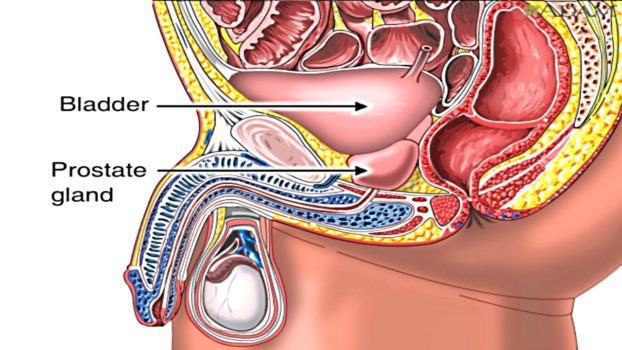Are you having trouble starting a stream of urine, leaking or dribbling?
Are you running to the bathroom so frequently every night?
If you are above 40 years of age and above, these signs may likely be that of one form of prostate issue or the other.

There are many treatments for enlarged prostates (BPH), but all have side effects and possible complications. Learn what to expect — and how to decide.
It’s a problem that has several names — enlarged prostate, benign prostate hyperplasia, or simply BPH. The most common prostate problem for men over 50 is prostate enlargement. By age 60, over one-half of men have BPH; by age 85, the number climbs to 90%, according to the American Urological Association (AUA).
Enlarged Prostate Symptoms and Causes
In men, urine flows from the bladder through the urethra. BPH is a benign (noncancerous) enlargement of the prostate that blocks the flow of urine through the urethra. The prostate cells gradually multiply, creating an enlargement that puts pressure on the urethra — the “chute” through which urine and semen exit the body.
As the urethra narrows, the bladder has to contract more forcefully to push urine through the body.
Over time, the bladder muscle may gradually become stronger, thicker, and overly sensitive; it begins to contract even when it contains small amounts of urine, causing a need to urinate frequently. Eventually, the bladder muscle cannot overcome the effect of the narrowed urethra so urine remains in the bladder and it is not completely emptied.
Symptoms of enlarged prostate can include:
A weak or slow urinary stream
A feeling of incomplete bladder emptying
Difficulty starting urination
Frequent urination
Urgency to urinate
Getting up frequently at night to urinate
A urinary stream that starts and stops
Straining to urinate
Continued dribbling of urine
Returning to urinate again minutes after finishing
When the bladder does not empty completely, you become at risk for developing urinary tract infections. Other serious problems can also develop over time, including bladder stones, blood in the urine, incontinence, and acute urinary retention (an inability to urinate). A sudden and complete inability to urinate is a medical emergency; you should see your doctor immediately. In rare cases, bladder and/or kidney damage can develop from BPH.
What
Most men put up with an enlarged prostate for months, even years, before seeking a solution. Luckily, there are several treatments including viable herbal treatments.
You may call or WhatsApp 024 9 57 96 64 for authentic prostate herbal treatment now.